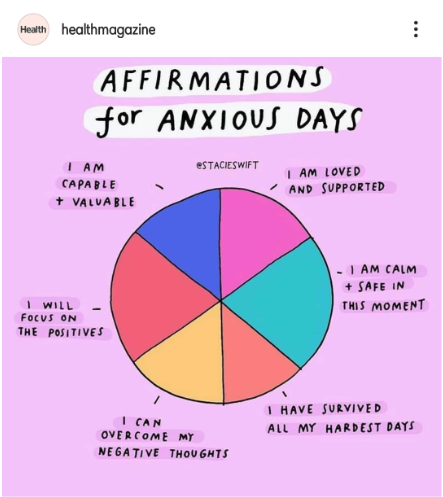Dealing with Anxiety in Uncertain Times

1. Get good information. It’s easy to let our minds run with the latest rumors popping up on social media, or listen to the talking heads speculate on cable news. Between video clips, memes, photo captions, and personal posts, we might see inaccurate information where ever we look. However, its most important during times of increased anxiety to make sure the information you are internalizing is high quality, timely, and well-informed. The same technology that enables rumors also empowers us with the ability to go right to the source for our updates, and although it may not be as fun as looking at memes on Facebook, it’s certainly more useful. We recommend following the Centers for Disease Control and Prevention, the federal Department of Health, and your state Department of Health for the best information. Subscribe to updates and check in with official sources.
2. Identify your priorities and have a plan for them. When too much comes at us all at once, it’s normal to feel overwhelmed. The demands of our daily lives, placed on top of spiked anxieties and uncertain situations, can create feelings of paralysis, deep stress, and powerlessness. You can take some of your power back by making some dedicated time to identify your main priorities and what you truly need to do to maintain them. This might mean developing a family emergency plan with your most important people, getting honest about what is top-necessity at work and what can wait, or ensuring that you’ve got a good grasp on the best ways to protect your personal health. Try to document your priorities and your support plan in some way: make a list, send yourself an email, tape them to your refrigerator – this act of listing and planning can be an effective way to remind yourself that you’re capable of working through tough times.
3. Give yourself permission to feel. Everyone has heard the phrase “bottling up your emotions”- most of us have also heard that phrase taken a step further with “and they all come bubbling out”. Identifying and managing our emotions is a key part of maintaining our social emotional health and “name it to tame it” is backed by research as an effective stress intervention. When you feel yourself reacting strongly to things going on around you (and we all do sometimes) take a moment to think to yourself or to write down “I am feeling _________.” This simple action causes your brain to take a step back from its firing emotional center and towards its reasoning and analytical center. This brief space can help you regain composure in an otherwise uncontrollable situation. It’s important to keep this strategy in mind around young people as well – we may think we are shielding children from our stresses when we deny our true emotions. In fact, kids are experts at picking up on subtle clues and they can tell if what we are saying isn’t exactly the whole truth. By naming our emotions and then practicing good coping mechanisms, we model an invaluable skill for youth: emotions will happen, but we get to choose how we react.
4. Communicate with your community. Just like the internet and our devices have made it easier to get the best information from the best resources, they have also made it easier than ever before to communicate with those around us. In times in heightened anxiety, keep your channels of communication open with those around you. This could mean that you ask for extra detail from your supervisor about your organization’s response plan, that you spend a couple minutes video calling your family members, or you shoot a text to your friend group just to check in. Rather than isolate ourselves from each other because of a situation beyond our control, weather that situation with those you care about – and if you are maintaining social distance, do so virtually. Maintaining physical distance does not have to mean maintaining emotional distance, so lean on those around you and if you’re able, let them know they can lean on you right back.
